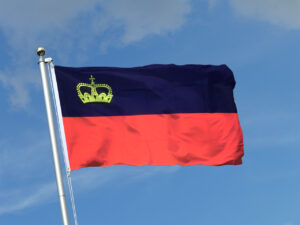Trusts and Foundations
A foundation is a legally and economically independent special-purpose fund that is established as a legal entity by the unilateral declaration of intent of the founder.
A trust, on the other hand, is a contractual relationship between a trustee and a settlor. It is therefore not a legal entity.
Trusts and foundations can be very useful tools for estate planning, asset protection and reducing the tax burden. We are Certified Public Accountants, German Public Auditors and Swiss audit experts. With our expertise, we advise clients worldwide on the establishment and structuring of trusts and foundations in various jurisdictions such as Malta or Liechtenstein.
(1) Asset Protection
(a) Defense against claims to a compulsory portion of the inheritance
If the testator does not leave a will, the inheritance is settled by law. During their lifetime, the testator can use a will to determine a distribution of assets that deviates from the statutory provisions. In many countries, there are limits to this testamentary distribution of assets. For example, family members are often entitled to a compulsory portion of the estate. This provision is intended to ensure that the deceased’s closest relatives receive a minimum share of the estate. This rule leads to a fragmentation of the estate and to the testator being patronized in the distribution of his or her assets. Establishing a trust or foundation and transferring the assets to the foundation can be an effective instrument for avoiding claims to a compulsory portion. Early planning generally makes it easier to find a solution.
(b) Protection against claims from equalization of gains in the event of divorce
When you get married, the matrimonial property regime is usually regulated by law. In some jurisdictions ther is a matrimonial property regime of community of accrued gains.
A characteristic feature of the community of accrued gains is that there are generally no joint assets of the spouses. Instead, each spouse remains the sole owner of the property they have brought into the marriage or acquired during the marriage.
However, in the course of permanent separation or divorce proceedings, at the request of one spouse, the assets acquired during the marriage (gains) can be divided equally between the two spouses. Equally, in the event of the death of one spouse, equalization takes place, usually through a lump-sum increase in the statutory inheritance share.
The risk of equalization of gains in the event of divorce can be prevented either by a marriage contract or by setting up a trust or foundation before the marriage.
(c) Prevention of Liability risks
Changing the characteristics of assets
In the event of liability, it is important to prevent access to your own assets as far as possible. From the creditor’s point of view, liquid assets in bank accounts or securities accounts are particularly easy to seize. Loans, real estate and unlisted company shares, on the other hand, are more difficult to realize. A foundation can help to change the character of the assets. For example, liquid assets can be sold to the trust or foundation. The trust or foundation can obtain the necessary funds through a loan agreement with the seller.
Changing the ownership of assets
By transferring the assets to the foundation, ownership of the assets is transferred to the foundation. Liability claims must therefore either contest the transfer of ownership or access the beneficiaries of the foundation.
The enforcement of foreign deeds in Liechtenstein is only possible on the basis of international treaties. The special feature here is that Liechtenstein has not acceded to the Lugano Convention. In addition, there are rules on asset protection for foundation beneficiaries in Liechtenstein and short avoidance obligations for donations. Liechtenstein therefore offers a comprehensive framework for the protection of foundation assets against liability claims.
(2) Tax Benefits
(a) Prevention of Exit Tax
In many countries, taxpayers who move abroad are subject to exit taxation. In this way, the former country of residence attempts to skim off the tax base. Transferring assets to a trust or foundation before moving abroad can help to prevent exit taxation.
(b) Prevention of Wealth tax
Wealth taxes tax the property of the taxpayer. The chain of ownership can be broken by transferring the assets to a foundation. This can help to avoid wealth tax.
(c) Reduction of the tax burden
The income of trusts and foundations in advantageous jurisdictions is taxed at very low tax rates. Investment income and income from foreign real estate and permanent establishments can be excluded from the calculation of income. Under certain circumstances, an application can also be made for taxation as a private asset structure. In this case, only a minimum tax is levied.

